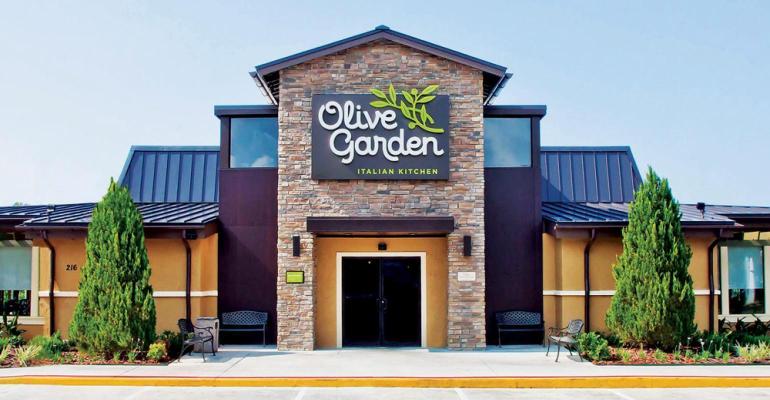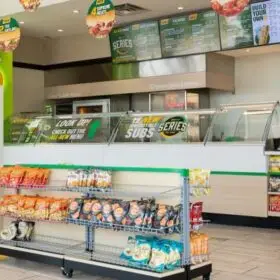
Darden Restaurants Inc., parent to such casual-dining brands as Olive Garden, Longhorn Steakhouse, Cheddar’s Scratch Kitchen and others, saw the lower income segment reduce spending in the Feb. 25-ended third quarter, executives said Thursday.
The Orlando, Fla.-based Darden, which released earnings Thursday, said lower income consumers showed sales impact. In February, Chicago-based McDonald’s Corp. also reported transaction reductions among lower-income consumers.
“The lower income consumer does appear to be pulling back,” said Rick Cardenas, Darden president and CEO, on an earnings call with analysts, “and the mix of guests based on income is now in line with pre-COVID.” The pandemic was declared in March 2020.
“We’re clearly seeing consumer behavior shifts,” Cardenas said.
“Third-quarter transactions from households with incomes above $150,000 were higher than last year,” he said. “Transactions from [household with] incomes below $75,000 were much lower than last year and at every brand. And at every brand, transactions fell from [households with] incomes below $50,000, similar to Q2. This shift was most pronounced in our fine-dining segment.”
Darden’s fine-dining segment includes such brands as the 64-unit Capital Grille, 30-unit Eddie V’s, 79-unit Ruth’s Chris Steak House, and 44-unit Seasons 52.
Cardenas said the Darden brands know how to operate in an environment where the lower-end consumer was pulling back, such as highlighting value without discounting and maintaining low staff turnover, which reduces training costs.
“We believe that operators can deliver on their brand promise with value and can continue to appeal consumers despite economic challenges,” Cardenas said. “That’s what we’re going to continue to focus on doing. I remain confident that we’re well positioned and prepared for whatever we have to deal with.”
Raj Vennam, Darden’s chief financial officer, noted that lower income consumers in the 65-and-older category managed their checks more in the third quarter, irrespective of income, with fewer add-ons and also shifted to lunch from dinner daypart visits.
For the third quarter ended Feb. 25, Darden’s net earnings were $312.9 million, or $2.60 a share, up from $286.6 million, or $2.34 a share, in the same quarter a year ago. Sales increased to $2.975 billion from $2.786 in the prior-year period.
Same-store sales in the third quarter declined 1% systemwide, including a decline of 1.8% at Olive Garden, an increase of 2.3% at LongHorn, a decline of 2.3% in its fine-dining division and a decline of 2.6% in its other business.
As of Feb. 25, Darden had 2,022 restaurants, including 917 Olive Gardens, 572 LongHorn Steakhouses, 181 Cheddar’s Scratch Kitchens, 88 Yard House units, 79 Ruth’s Chris Steak Houses, 64 Capital Grilles; 44 Seasons 52 restaurants, 43 Bahama Breeze units, 30 Eddie V’s, and four Capital Burgers.
Vennam said Darden expects to add 50 to 55 new restaurants in fiscal 2024 and 45 to 50 new restaurants in fiscal 2025.
Cardenas said Darden remains cautious about its new restaurant targets.
“It’s still taking longer to get construction starts than it was four years ago,” he said. “It’s also taking longer to get to completion than it was in the past.”
Given additional time for development, permitting, and getting certificates of occupancy, restaurant opening targets are conservative, Cardenas added.
Original Article:
[H/T] RestaurantBusinessOnline.com






 Powered by
Powered by